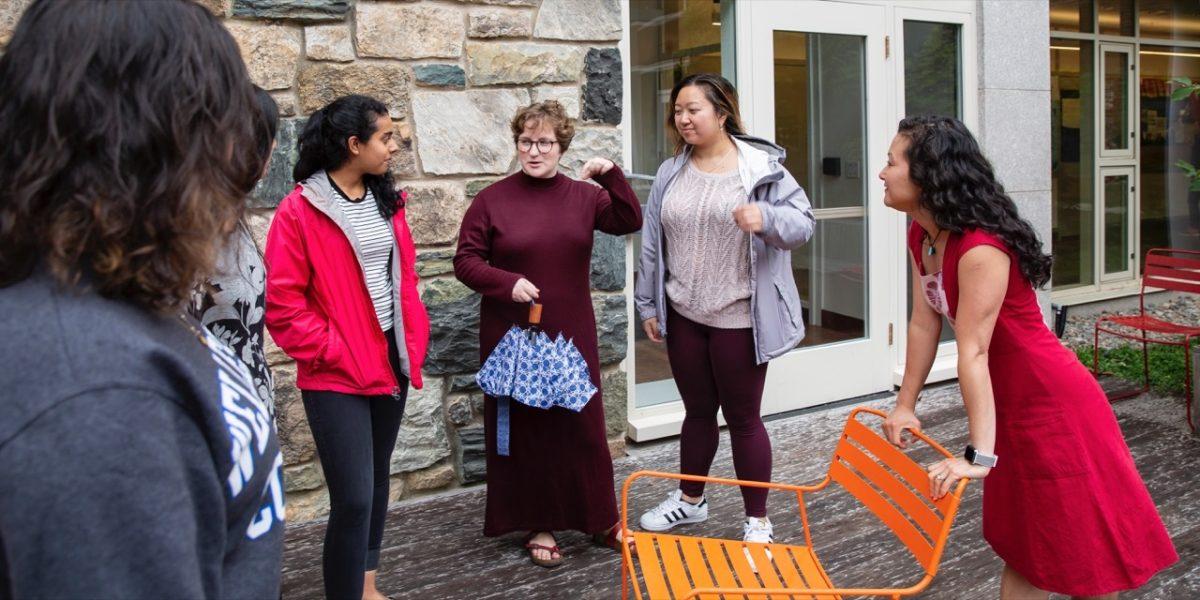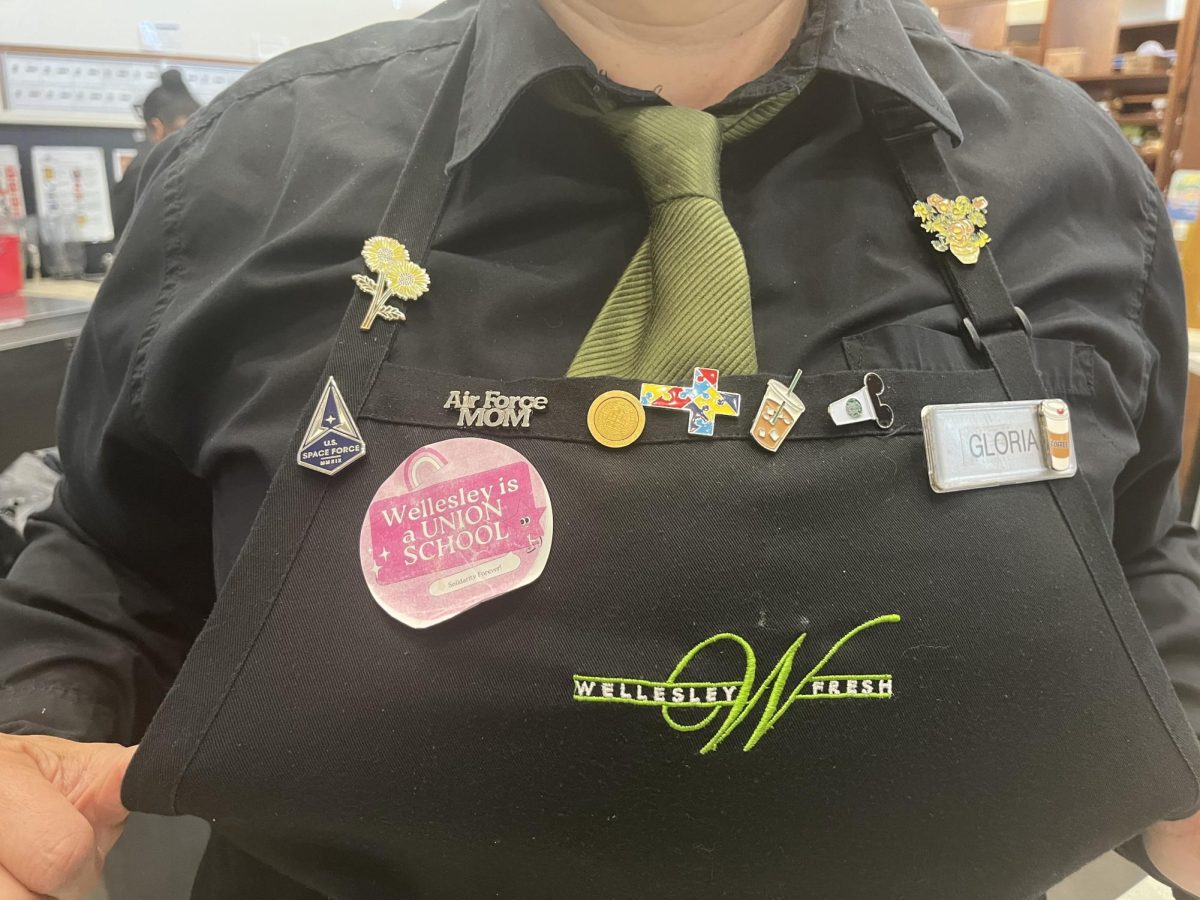Shortly before their training began, residential life student employees received a new offer: In exchange for a higher rate of pay, Resident Assistants (RAs) would begin to run Community Engagement hours in their dorm. Community Engagement (CE) hours are a scheduled time, 7:30-10 p.m. nightly on weekdays, and 8:30-11 p.m. on Friday and Saturday nights, when an RA is available in a common space in every dorm to engage socially with students.
The initiation of CE hours is part of a larger effort to make Wellesley a more socially open place. Residence staff, House Presidents’ Council (HPC) and the Director of Residential Life Helen Wang are collaborating to make dorms into more vibrant communities where students can get additional chances to interact with one another. To that end, RAs will now be performing lockout procedures or letting students back into their rooms when they lock themselves out during certain hours, a job that was formerly reserved for Area Coordinators (ACs) and Campus Police.
Samara Shaz ’21, an RA in Cazenove, said that these attempts to shift the culture are based on student feedback. “Last year,they took a survey, and most of the student body answered. There was one response that was like, ‘I felt like nobody knew me, and I felt like if I disappeared nobody would care, nobody would notice.’ And that’s what they really wanted to change, and so even if you aren’t doing Community Engagement, it’s just kind of making sure you’re present,” Shaz said. She does not personally participate in CE hours, as she felt she already had too much to do. However, she supports the goal of greater community connectedness. “The goal is to make the student body less reliant on going out into Boston to have a good time” and to “create a social life on campus that is self-sustaining.”
Wang, the new director of residential life, began work at Wellesley this April and spearheaded these changes in response to the survey from last April. “What I found was, in general, students were reporting feeling less connected than I would have liked them to feel,” Wang said. The construction of CE hours was centered around the idea of creating more opportunity for community-building without making students feel more restricted.
“We went back and forth on doing it, because ultimately what we didn’t want it to feel like was more policing … we’re trying to create a sense of vibrancy,” Wang continued. “My ultimate goal was that students at any point during the evening hours could find someone who cared about them and wanted to engage with them.”
In addition to CE hours, House Presidents (HPs) will now have a more expanded role. In the past, Area Coordinators—the professional staff who oversee different “neighborhoods”—would lead meetings for each hall’s staff. Now, according to Shafer House President Cassandra Cronin ’19, HPs will be leading those meetings themselves, as well as running one-on-one meetings with RAs.
“We’re kind of taking a more professional-development standpoint,” Cronin said. She added that the changes in her have been noticeable. “I was abroad my junior year, but my sophomore year … I remember the vibe in the dorm being completely off. It was very quiet, people weren’t communicating so much. But coming back my senior year, I would say there’s been kind of a transformative effect going on in Shafer. We’ll have people talking in the living room until like 1 in the morning, there’s great attendance at HoCo … I feel like there’s more of an engagement in res life this year.”
Calista Bullitt ’21, an RA in Munger, says that they can see changes happening in their dorm in particular. “With CE hours, I definitely think Munger at nighttime has gotten more lively, because [in previous years] people would just sit in their rooms all the time, and now there’s two hours where there’s someone sitting somewhere with the TV on, or tea out, or playing music and studying,” they said. “And people do come and interact with us, which is really cool.” Residents often approach Bullitt with their questions and concerns, though Bullitt is not always able to help. “Like, calculus? I can’t do that,” they joked.
However, shifting the culture among upperclassmen might be harder than doing so with first years, explained Munger RA Carolina Jiménez ’21.
“I think it’s easiest with first years, because they don’t have any expectations, and it’s not something that’s different from how Wellesley has functioned to them before,” Jiménez said. “I think upperclass students are kind of resistant, because it is kind of weird. I’ve had people where I go in for CE hours, and I go into a common space and they get up and leave. It’s definitely like, ‘Ah, shoot, please stay and talk to me!’ But it’s also understandable because they know a space as a study space and that’s what they’re using it for. So I would say that it’s hard as an RA to have the instruction of, ‘You have to change the culture,’ because the culture isn’t going to change as fast as the administration wants it to.”
In addition, some RAs feel as though their new Community Engagement responsibilities are unclear and take up too much time. An RA from the class of 2021, who chose to remain anonymous, said that participating in CE hours is difficult. “It’s at a very inconvenient time,” she said “Because generally 7:30 to 10 p.m. during the week is when most people are doing homework. And so it’s hard for me to ‘actively engage’ without feeling as though I’m disrupting my residents. It also makes it difficult for me to do my own homework, as CE is a lot less passive than I expected.”
On Friday and Saturday nights, in particular, this RA was uncertain that her CE hours had a great impact. “The intention is great, and I do feel as though the accessibility of RA’s is incredibly vital for a res community,” she said. “However, I just feel it needs to be reformed in a way that’s best suited for residents and meets their specific needs.”
Wang emphasized that this program is open to change, and may be worked on in future years to help it become more effective in relating to all students. “We’re focused on making changes in a way that is respectful to everyone,” she said, and added that she seeks feedback from the student body to help the residence staff answer one fundamental question: How are we going to build a residential space that everyone feels embraced by?






